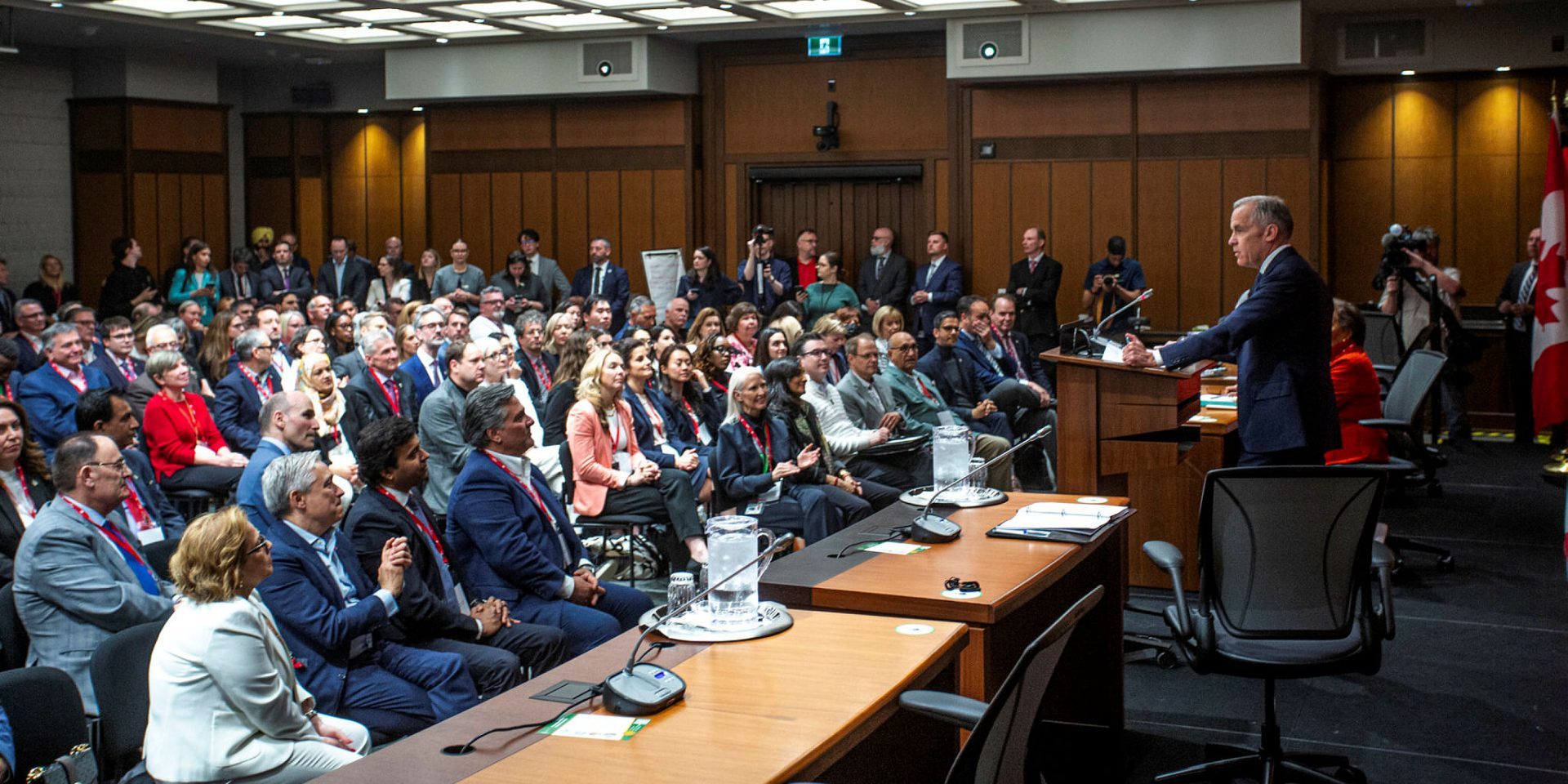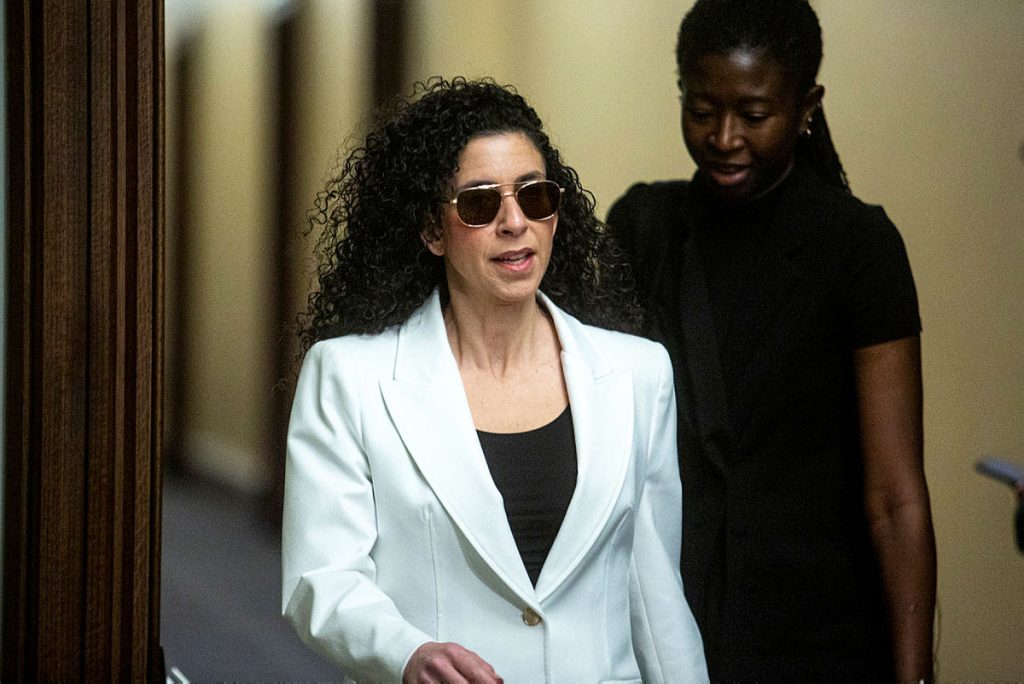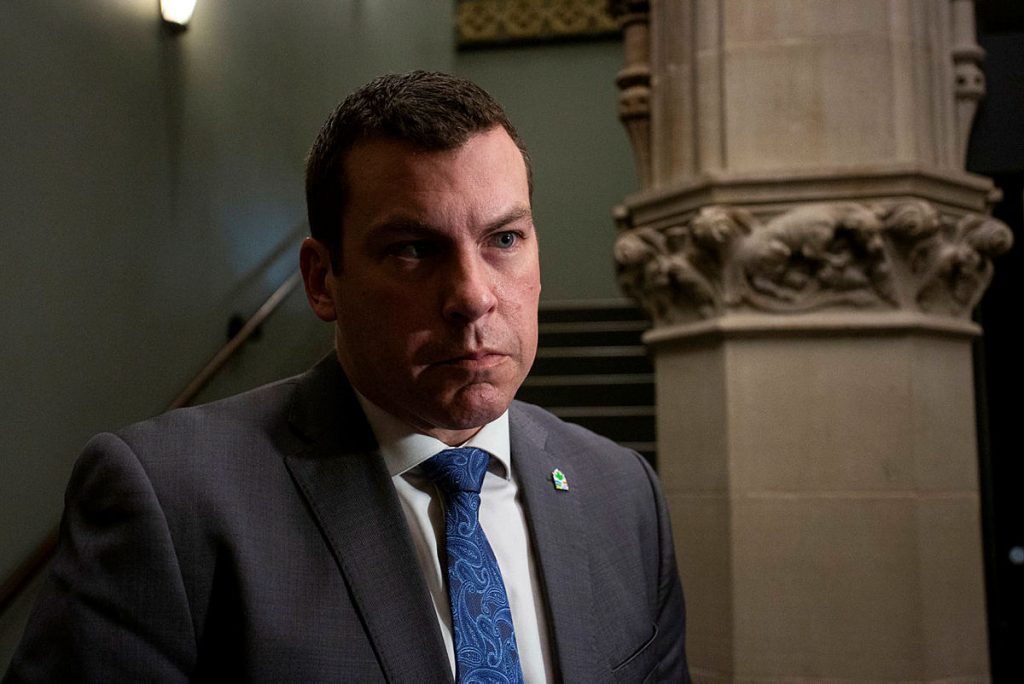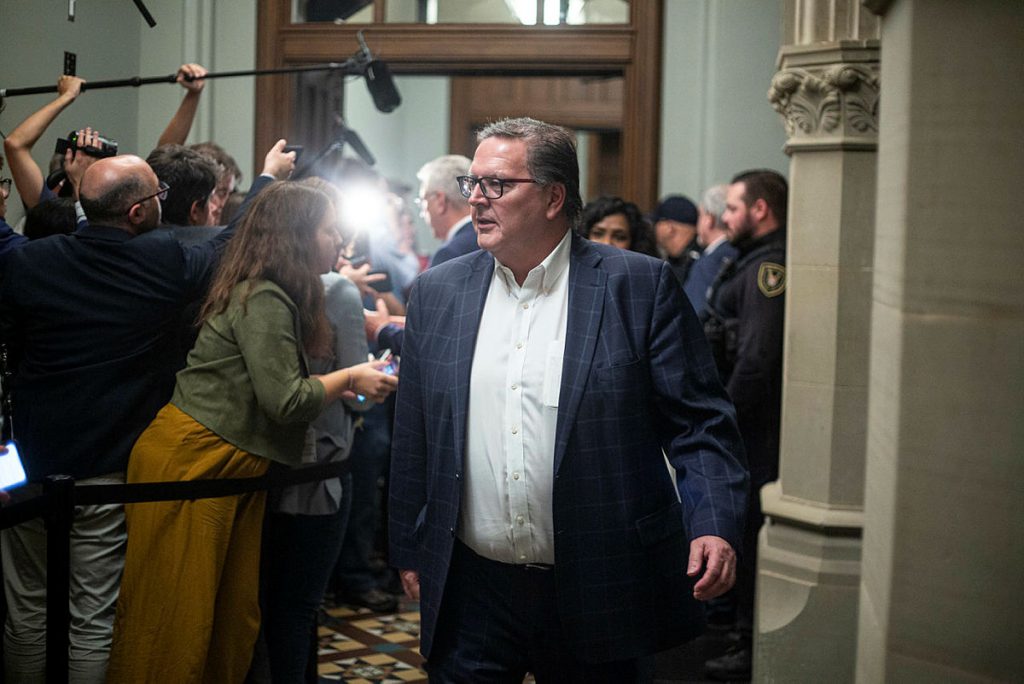Carney’s success hinges on effective caucus management, but he has struggled so far, say some Liberal MPs

The current 169-member Liberal caucus is largely made up of seasoned MPs who have recently experienced political upheaval in ousting Justin Trudeau, and for Mark Carney to succeed as prime minister, he must ensure his MPs have direct and consistent access to him and are treated fairly in cabinet promotions, say Liberal MPs.
In interviews with The Hill Times, Liberal MPs, who did not want to be identified, pointed out that in 2015, Trudeau inherited an almost brand new caucus, with most members newly elected and grateful to be in the House. Almost no one raised any concerns about not getting promotions to cabinet, and Trudeau effectively shaped their understanding of parliamentary conduct. Having spent more than a decade in Parliament, members from the class of 2015 and earlier now see themselves as potential cabinet ministers—a dynamic not uncommon in long-governing parties, which makes it a challenge to manage the caucus effectively.
“Every backbench MP is comparing themselves to the current ministers, questioning why they weren’t chosen—and why someone they see as less qualified got a promotion,” said an MP who spoke on a not-for-attribution basis in order to speak their mind.
Throughout last year, tensions grew as MPs pushed for Trudeau to step aside, viewing him as a political liability because of tanking polling numbers. They say their efforts were driven by a desire to prevent the party from falling to third or fourth place in the next election. The current caucus that Carney has inherited is a very different one from 2015, and it will require a significant amount of effort from him to keep the unity by treating everyone fairly, especially when it comes to promotions to the front bench.
“It’s a caucus with scars and bumps and dents and, you cannot just assume that you can shape this caucus to your liking like Trudeau,” said the Liberal MP.
Although Carney is now the party leader and prime minister, he remains a political newcomer to elected politics. He only entered the political arena in January and was elected to the House for the first time in the April 28 election, making him part of the class of 2025. Roughly one-third of the caucus is newly elected like him, but the majority of MPs have been serving since 2015, with about 10 MPs having been elected even before then.

This means two-thirds of the caucus are seasoned parliamentarians. Many of those who were passed over for cabinet positions under Trudeau had hoped for a promotion under Carney’s leadership, while former cabinet ministers expected to retain their roles. To put his own stamp on the front bench, however, Carney made significant changes in his May cabinet shuffle—disappointing both groups who were not able to make it to his executive council.
Four MPs—Rachel Bendayan (Outremont, Que.), Arielle Kayabaga (London West, Ont.), Kody Blois (Kings-Hants, N.S.), and Ali Ehsassi (Willowdale, Ont.)—were promoted to cabinet by Carney in March only to be dropped in May without a scandal, gaffe, or wrongdoing. Others like Terry Duguid (Winnipeg South, Man.), Darren Fisher (Dartmouth-Cole Harbour, N.S.), Élisabeth Brière (Sherbrooke, Que.) and Nathaniel Erskine-Smith (Beaches-East York, Ont.) who got promotions in December by Trudeau, were later dropped by Carney in his May 13 cabinet.
Some of the recently dropped cabinet ministers privately expressed frustration with colleagues, saying they were “used” to show diversity or differentiation from Trudeau’s cabinet, and said they felt “publicly humiliated” by their sudden removal.
“They feel betrayed, double crossed,” said the MP.
Carney announced the appointment of Bendayan and Blois as his parliamentary secretaries at the May 25 national caucus meeting.
Frustrated by being left out of cabinet, some Liberal MPs predicted that dropped Trudeau-era ministers—or long-serving MPs with little chance of promotion—may resign in the coming months, potentially triggering byelections. One of the most speculated names in this context is former defence minister Bill Blair (Scarborough Southwest, Ont.). When reached last week by The Hill Times after the national caucus meeting to confirm whether he plans to serve out his entire term or will step down before that, he declined to comment.
“I’m not commenting,” said Blair, 71, a former Toronto Police chief, who held several senior ministerial portfolios between 2018 and 2025, but was dropped from cabinet last month.
MPs speculate that at least three senior caucus members could step down in the coming months. If that happens, it could create political headaches for Carney, especially in a minority government where every seat matters—the Liberals are currently three seats short of a majority. The loss of three byelections last year in previously Liberal-held ridings—Toronto–St. Paul’s, Ont.; LaSalle–Émard–Verdun, Que.; and Cloverdale–Langley City, B.C.— left Liberal MPs uneasy, reinforcing the sense that most of their seats could be up for grabs in the next federal election. This gave them a strong reason to push out Trudeau.
For about two years, the Liberals trailed the Conservatives by more than 20 points in the polls. The tide began to turn after Trudeau announced he wouldn’t lead the party into the next election. Momentum grew during the Liberal leadership race, with many rank and file members viewing Carney’s financial background as an asset against Trump’s tariff threats. He won all 343 ridings in the leadership election. Under Carney’s leadership, the Liberals secured 8.5 million votes and won a strong minority with 169 seats—just three short of a majority. He revived the Liberals.

Political insiders expected a bump in the polls for the Liberals after they formed government following the April 28 election—but they remain neck and neck with the Conservatives, separated by less than two percentage points, according to a recent Nanos Research poll. A May 23 poll released by Nanos suggested that the Liberals were at 40.4 per cent, the Conservatives 38.6 per cent, the NDP 9.8 per cent, the Bloc 5.9 per cent and the Greens 3.7 per cent.
Meanwhile, a second MP voiced frustration over being passed over for cabinet.
“I’m just so sick and tired of this party, all being about people putting in their own friends. I really am. I’m like, ‘Really, after all these years, you guys kicked me in the teeth every step of the way and now I have to relive this again.’ It’s astounding,” the MP said who is unsure if they will stick around for the next election.
“I was hoping this [under Carney] was going to be a reset, and I’m like ‘really, here we go again.’ Same reality. Liberal insiders putting in their own friends. Come on! I thought this was supposed to be about meritocracy. I have never made a stink about anything but now it’s enough. Mark Carney was supposed to be different than Justin Trudeau. I’m so disgusted. Over all these years, I was like, ‘Chin up, chin up, don’t worry, don’t worry, think long term, think long term.’ But now I think nothing ever changes with this party.”
This MP remarked that during the election campaign, Carney consistently heard calls for renewal: new faces and a new team. However, many “principal ministers” in his cabinet are holdovers from the Trudeau era, which has raised concerns among MPs hoping for a change, the MP said.
The MP also highlighted the lack of cabinet representation along the 401 corridor from Toronto to Ottawa—including cities like Ajax, Pickering, Whitby, and Kingston—as well as towards Windsor, leaving regions such as Guelph, Kitchener, St. Catharines, Waterloo, amd Hamilton without a voice at the cabinet table. The MP said that this is just one example, and there are others in different regions of the country.
After being dropped from cabinet, Erskine-Smith also publicly expressed his disappointment in a social media post.

Similarly, ahead of the May 13 cabinet announcement, Jonathan Wilkinson (North Vancouver—Capilano, B.C.) put out a three-page statement outlining his accomplishments as a minister. Though he did not directly criticized Carney, colleagues saw it as a subtle message—highlighting his track record to emphasize that he was dropped despite his achievements.
Meanwhile, several Liberal MPs interviewed for this article pointed to four-term Liberal MP James Maloney’s (Etobicoke-Lakeshore, Ont.) acclamation as national caucus chair as a positive step, saying that he brings experience and a fresh start under a new leader. Previously, Maloney served as chair of the Ontario Liberal caucus—the largest regional caucus of any political party on Parliament Hill. MPs hoped that he would change the structure of the caucus meetings to give more time to backbench MPs to share their concerns with the prime minister and his front bench. Maloney was acclaimed as caucus chair at the first meeting on May 25 after the April 28 federal election.
Last Wednesday, no PMO or any other staffer was allowed to attend the meeting, and MPs discussed ways to make national caucus meetings more productive and efficient. MPs said they hoped that, going forward, no staffers would be allowed to attend caucus meetings. Under Trudeau, senior PMO staff routinely attended national caucus meetings—a practice many MPs opposed, arguing that these meetings should allow them direct, unfiltered access to the prime minister without staffers in the room.
During the eras of then-prime ministers Jean Chrétien and Paul Martin, staffers were strictly barred—caucus was reserved for MPs and the prime minister only. Since 2015, many MPs have pushed to return to that practice, calling for staff to be excluded from caucus meetings.
“If you want to be a successful prime minister, you need to have direct contacts with every single one of your caucus members,” said a third Liberal MP. “There should never be anyone between the prime minister and the member. Any caucus member should have access to the prime minister and national caucus should be a place where he’s listening.”
In a brief interview with The Hill Times, while Maloney declined to disclose any specific caucus discussions due to confidentiality, he said that, in general terms, MPs are actively exploring ways to make caucus meetings more productive.
“I’m going to talk to my caucus colleagues and see what they want to do,” said Maloney.
The Hill Times






 LICENSING
LICENSING PODCAST
PODCAST ALERTS
ALERTS













